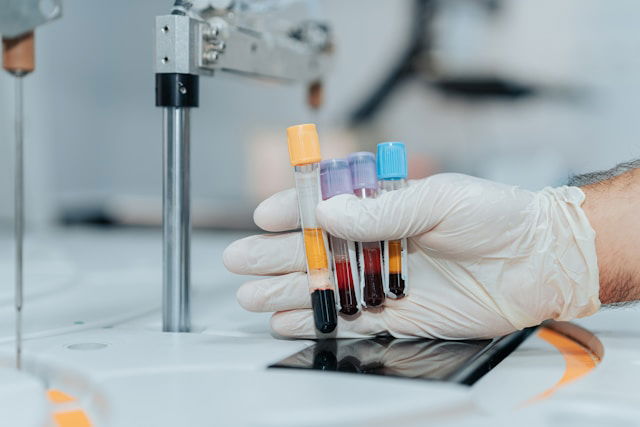
A new study has found that genetic material from tumors can be detected in the blood up to three years before a person is diagnosed with cancer.
The research was led by scientists from the Ludwig Center, the Johns Hopkins Kimmel Cancer Center, the Johns Hopkins University School of Medicine, and the Bloomberg School of Public Health. Their findings were published on May 22 in the journal Cancer Discovery.
This discovery could change the way cancer is detected and treated. “We were surprised we could find cancer signals in the blood so far in advance,” said lead author Dr. Yuxuan Wang. “Detecting cancer three years earlier gives us a chance to treat the disease when it’s less advanced and more likely to be cured.”
The team studied blood samples from participants in a long-term health study called the Atherosclerosis Risk in Communities (ARIC) study. This large study, funded by the National Institutes of Health, was originally designed to look at heart disease and stroke.
The researchers used advanced genetic sequencing tools to examine blood samples from 26 people who were later diagnosed with cancer and 26 similar people who were not.
Out of these 52 people, eight tested positive on a special lab test designed to detect many types of cancer. All eight were diagnosed with cancer within four months of giving their blood sample.
For six of those people, older blood samples—taken more than three years earlier—were also available. When researchers tested those older samples, they found cancer-related genetic mutations in four of them.
“These results show that it may be possible to detect cancer years before symptoms appear,” said Dr. Bert Vogelstein, one of the senior authors and co-director of the Ludwig Center at Johns Hopkins. “It also helps us understand the level of sensitivity these blood tests need in order to be useful.”
Multicancer early detection (MCED) tests look for genetic changes in the bloodstream that come from different types of tumors. This study shows that such tests could become a powerful tool in catching cancer early, long before a person shows any symptoms.
“This type of testing could give doctors more time to act and improve outcomes for patients,” said Dr. Nickolas Papadopoulos, another senior author of the study. However, he also pointed out that more research is needed to figure out what should be done after someone gets a positive result from one of these tests.
In the future, these blood tests could be used as part of regular health checkups, helping to catch cancers early when they are easiest to treat.
For more information about cancer, please see recent studies that plant-based diets may reduce risk of colorectal cancer in men, and Low-fat diet may help stop cancer growth.
For more information about cancer, please see recent studies about How to harness the power of anti-cancer foods and supplements and results showing that Empower your plate: cancer-fighting foods and recipes.
The study is published in Cancer Discovery.
Copyright © 2025 Knowridge Science Report. All rights reserved.



